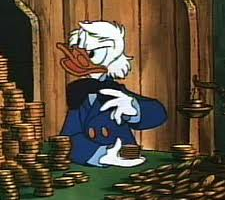Train All Team Members Who Come Into Contact With Clients How to Work With an Upset Client
By Keith Lee
We’ve used this system to take care of upset clients in all my businesses since 1991.
I suggest you train your front line people to implement the LEAR Principle and the “Make-You-Happy Guarantee” (which I’ll explain later). You don’t need to advertise this new guarantee when you start. Simply implement it and see how it goes. If it works, go with it. If it doesn’t work, go back to what you have now.
Here is the LEAR Principle
L is for Listen
Listen and don’t interrupt. There are a lot of reasons we don’t interrupt upset clients. We don’t interrupt because, number one, it’s rude. Another reason is that when we’re upset, you and I and everyone else do the exact same thing: We practice what we’re going to say. And we practice what we’re going to say from the beginning. So if you interrupt, you’re probably just going to have to listen to the whole thing all over again from the beginning. Then of course we listen to the client because we respect the client and know that they are, in fact, the boss. They pay all of our bills. They give us every raise we’ll ever get. They pay for our kids’ education and for everything we own.
E is for Emphasize
Empathize means to put ourselves in their shoes. Say something like, “Wow. I understand why you’re upset. I’d be upset, too” or, “I’m sure glad you told me that so we can do something about it.” Or simply, “Thanks for telling me.”
A is for Ask
Ask, “What can I do to make you happy?” Now, most of the time you don’t actually have to ask. Often times it is obvious. But, sometimes you will want to ask. The main thing though, is the idea and your attitude of “What can I do to Make You Happy?” It’s your job to make the client happy.
R is for Resolve
You will want to give your team members guidelines as to what they can and can’t do right then and there to make the client happy. If what the client wants is reasonable, and it is within the guidelines you give, your team member needs to make the client happy. Train them to take care of the client right then and there.
I know if is easy for me to say without an angry person in front of me to implement this LEAR Principle. It’s a lot more difficult to implement calmly and rationally when someone is possibly screaming at you or showing a huge amount of disfavor towards you. You need to train your team members to understand that the client is upset at the situation and not with them. Teammates need to be trained to not take it personally. They need to understand that the client is upset with the situation and not them personally. Train your team members to take a deep breath, and tell themselves, “This is not me. It’s the situation.” Train them to talk to themselves and make sure that they are the person who stays calm and collected. Train them that there is never an excuse ot get angry or short.
If the client is terribly abusive with swearing or something like that, your team member needs to be trained to say, “Sir, if you could watch your language I’m sure I can help you,” or, “Ma’am, if you want to watch your language I’m sure I can help you.”
Now, what if what the client asks for is above your guidelines or is completely unreasonable? In this case you simply say to the client something like, “I’m going to have to get a manager to see if we can do that.” Or, “Let me see if my manager can take care of that for you.” Or, “You know, we don’t have a manager here at the moment who can approve that right now, but can I get your phone number and I can have them get back to you tomorrow morning or whenever is most conventient for you?”
In order to use the LEAR Principle effectively I suggest you empower your front line people with your “Make-You-Happy Guarantee.” I believe “Make-You-Happy” is the best and least costly guarantee for your business.
Here’s our Make-You-Happy Guarantee: “When a client has a problem, American Retail Supply team members are trained to ask, ‘What can I do to make you happy?’ In 43 years we have never refused a client’s request to make it right.”
Does this mean we’ll do anything? Just about. We’ve never refused a client’s request to make it right yet. But my guess is that someday someone will ask for something so outrageous that we don’t do it. Then I won’t be able to say, “In 43 years we’ve never refused a client’s request to make it right.”
I’ve given my seminar, “How to Compete with the Mass Merchandisers” to many different organizations. Each time I ask retailers if any have a guarantee similar to ours. In every seminar a few people raise their hands. Then I ask them how the guarantee works. Every person, every time answers, “Great!”
Then I ask each of these retailers with the What Can I Do To Make You Happy Guarantee, “How often do people ask for more than what you would be willing to give them?” The answer is “Almost never,” or “Never!”
If people never, or almost never ask for more than you would be willing to give them, why ask them to jump through hoops, or talk to a manager to give them what they want?
This guarantee will most likely cost you less than a guarantee in which you make an offer to the client. More often than not the client will ask for much less than you would have offered. This savings will more than make up for the few times that clients are unreasonable.
You certainly will want to give your staff some guidelines. Give them a limit as to what they can do without a manager’s approval. Then, unless the request is ridiculous, train them to take care of the client on the spot!
Again, if the request is ridiculous or over their limit, train them to say something like, “I’m sorry, but I’m not authorized to do that, but if I can get your name and phone number I’ll be sure that our owner gives you a call tomorrow.”
So What Happens When Someone Asks for Something Really Unreasonable?
In my next blog post, I’ll go over some tips on what to do in the rare event that someone asks for something really unreasonable. Stay tuned…
In the meantime, are you wondering where these guidelines come from? And how do you handle other things like greeting customers, talking with customers on the phone and working together as a team to deliver better-than-average customer service? Click here to find out more about how we do this in our businesses.
For a limited time, you can also get a free copy of my book – The Happy Customer Handbook.










